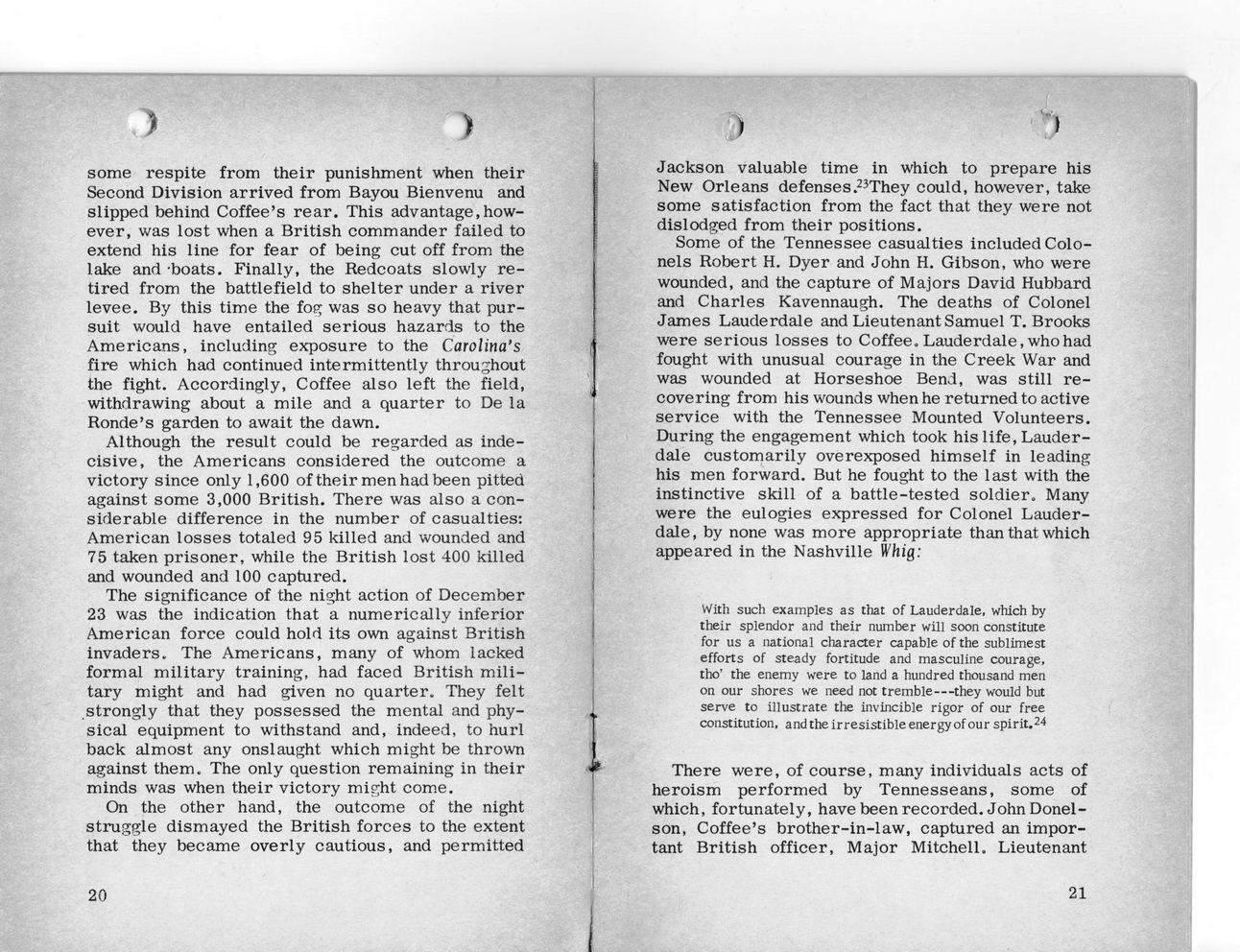This text was obtained via automated optical character recognition.
It has not been edited and may therefore contain several errors.
> > some respite from their punishment when their Second Division arrived from Bayou Bienvenu and slipped behind Coffee?s rear. This advantage,however, was lost when a British commander failed to extend his line for fear of being cut off from the lake and -boats. Finally, the Redcoats slowly retired from the battlefield to shelter under a river levee. By this time the fog was so heavy that pursuit would have entailed serious hazards to the Americans, including exposure to the Carolina's fire which had continued intermittently throughout the fight. Accordingly, Coffee also left the field, withdrawing about a mile and a quarter to De la Ronde?s garden to await the dawn. Although the result could be regarded as indecisive, the Americans considered the outcome a victory since only 1,600 of their men had been pitted against some 3,000 British. There was also a considerable difference in the number of casualties: American losses totaled 95 killed and wounded and 75 taken prisoner, while the British lost 400 killed and wounded and 100 captured. The significance of the night action of December 23 was the indication that a numerically inferior American force could hold its own against British invaders. The Americans, many of whom lacked formal military training, had faced British military might and had given no quarter. They felt strongly that they possessed the mental and physical equipment to withstand and, indeed, to hurl back almost any onslaught which might be thrown against them. The only question remaining in their minds was when their victory might come. On the other hand, the outcome of the night struggle dismayed the British forces to the extent that they became overly cautious, and permitted 20 Jackson valuable time in which to prepare his New Orleans defense s.23They could, however, take some satisfaction from the fact that they were not dislodged from their positions. Some of the Tennessee casualties included Colonels Robert H. Dyer and John H. Gibson, who were wounded, and the capture of Majors David Hubbard and Charles Kavennaugh, The deaths of Colonel James Lauderdale and Lieutenant Samuel T. Brooks were serious losses to Coffee. Lauderdale, who had fought with unusual courage in the Creek War and was wounded at Horseshoe Bend, was still recovering from his wounds when he returned to active service with the Tennessee Mounted Volunteers. During the engagement which took his life, Lauderdale customarily overexposed himself in leading his men forward. But he fought to the last with the instinctive skill of a battle-tested soldier. Many were the eulogies expressed for Colonel Lauderdale, by none was more appropriate than that which appeared in the Nashville Whig: With such examples as that of Lauderdale, which by their splendor and their number will soon constitute for us a national character capable of the sublimest efforts of steady fortitude and masculine courage, tho? the enemy were to land a hundred thousand men on our shores we need not tremble?they would but serve to illustrate the invincible rigor of our free constitution, and the irresistible energy of our spirit.2^ There were, of course, many individuals acts of heroism performed by Tennesseans, some of which, fortunately, have been recorded. John Donel-son, Coffee?s brother-in-law, captured an important British officer, Major Mitchell. Lieutenant 21

Battle of 1814 21